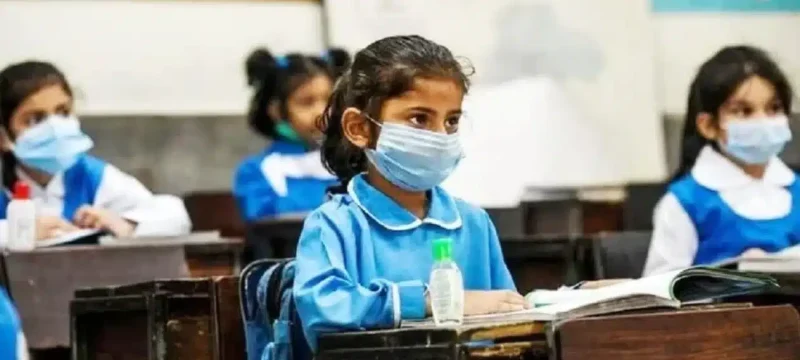On International Literacy Day, Pakistan confronts a challenging reality, with an actual literacy rate of 59.3%, falling short of global standards.
Education Secretary Waseem Ajmal Chaudhry clarified that the 62.8% figure reported in the Economic Survey 2022-23 was merely an estimate and did not incorporate the latest census data. Following the national census, the genuine literacy rate was assessed at 59.3%, indicating that the country’s literacy rate has not decreased but has rather exhibited some improvement.
Chaudhry further highlighted that all provinces witnessed an uptick in literacy rates, with Punjab rising from 66.1% to 66.3%, Sindh from 61.1% to 61.8%, Khyber Pakhtunkhwa (KP) from 52.4% to 55.1%, and Balochistan from 53.9% to 54.5%. This cumulative increase now places the actual literacy rate for the nation at 59.13%.
Also Read: TikTok’s Creative Learning Revolutionizing Education
Nevertheless, the education sector in Pakistan remains underfunded, a primary contributor to the stagnation in literacy rates. A teacher from a federal government school expressed dissatisfaction with a 60% literacy rate, as it leaves 40% of the population illiterate.
Pakistan allocates less than 2% of its GDP to education. The Economic Survey for 2022-23 revealed that the combined education expenditure by federal and provincial governments for fiscal year 2022 amounted to a mere 1.7% of the GDP. The report also highlighted that 32% of children were not attending school, with more girls than boys deprived of an education. Balochistan had the highest percentage of out-of-school children at 47%, followed by Sindh with 44%, KP with 32%, and Punjab with 24%.
Pakistan currently holds the global record for the highest number of out-of-school children, with over 23 million children missing out on education. Furthermore, concerns persist regarding the quality of education, with surveys indicating that a significant number of fifth graders struggle to read sentences in both English and Urdu.
Higher education has also fallen short of expectations, as numerous Ph.D. holders have staged protests in Islamabad in recent years, demanding job opportunities in government universities.
On International Literacy Day, voices within Pakistan’s education sector call for a recalibration of priorities, emphasizing the urgent need for increased funding and support to ensure the nation’s future prosperity through education.









